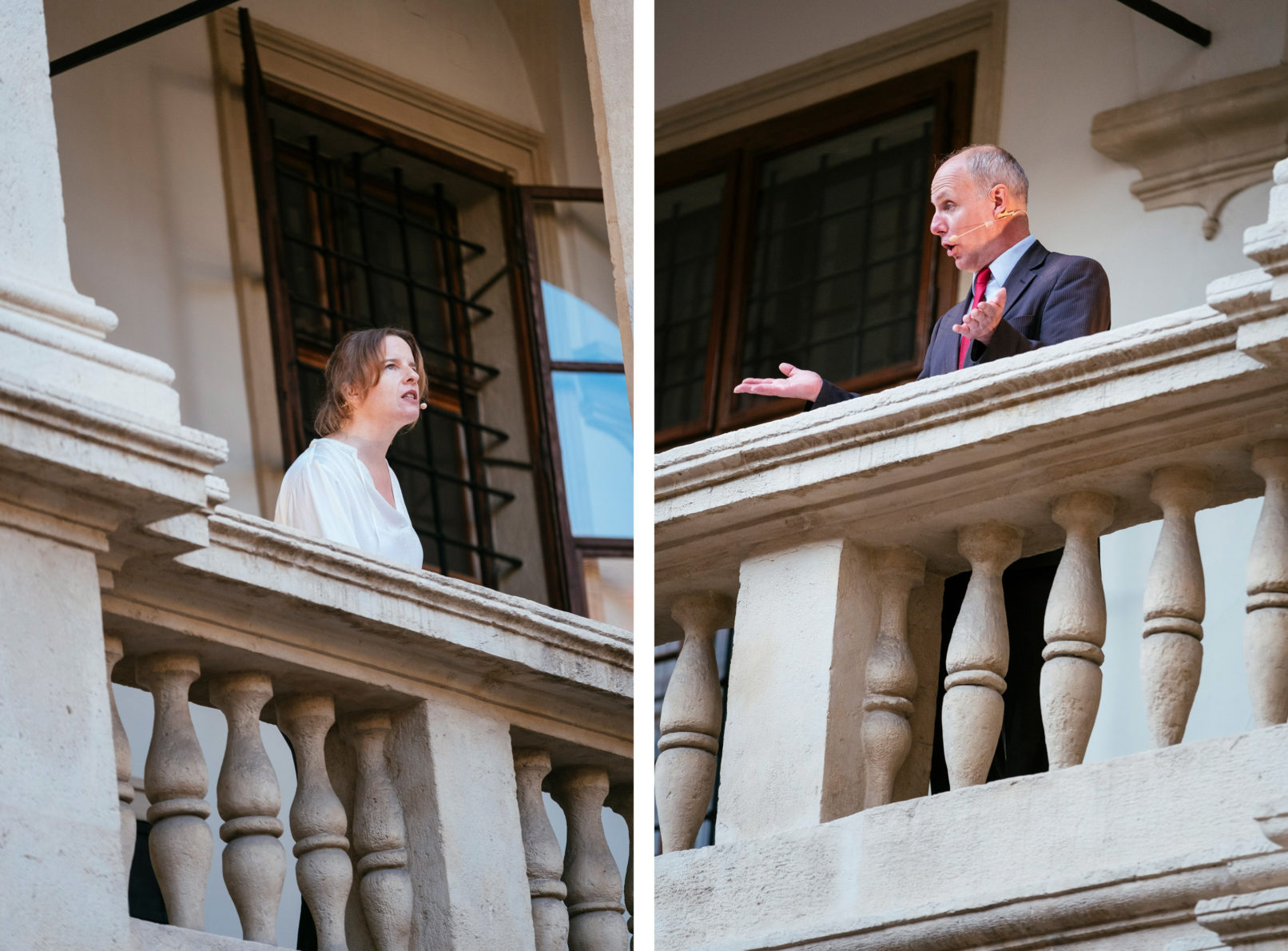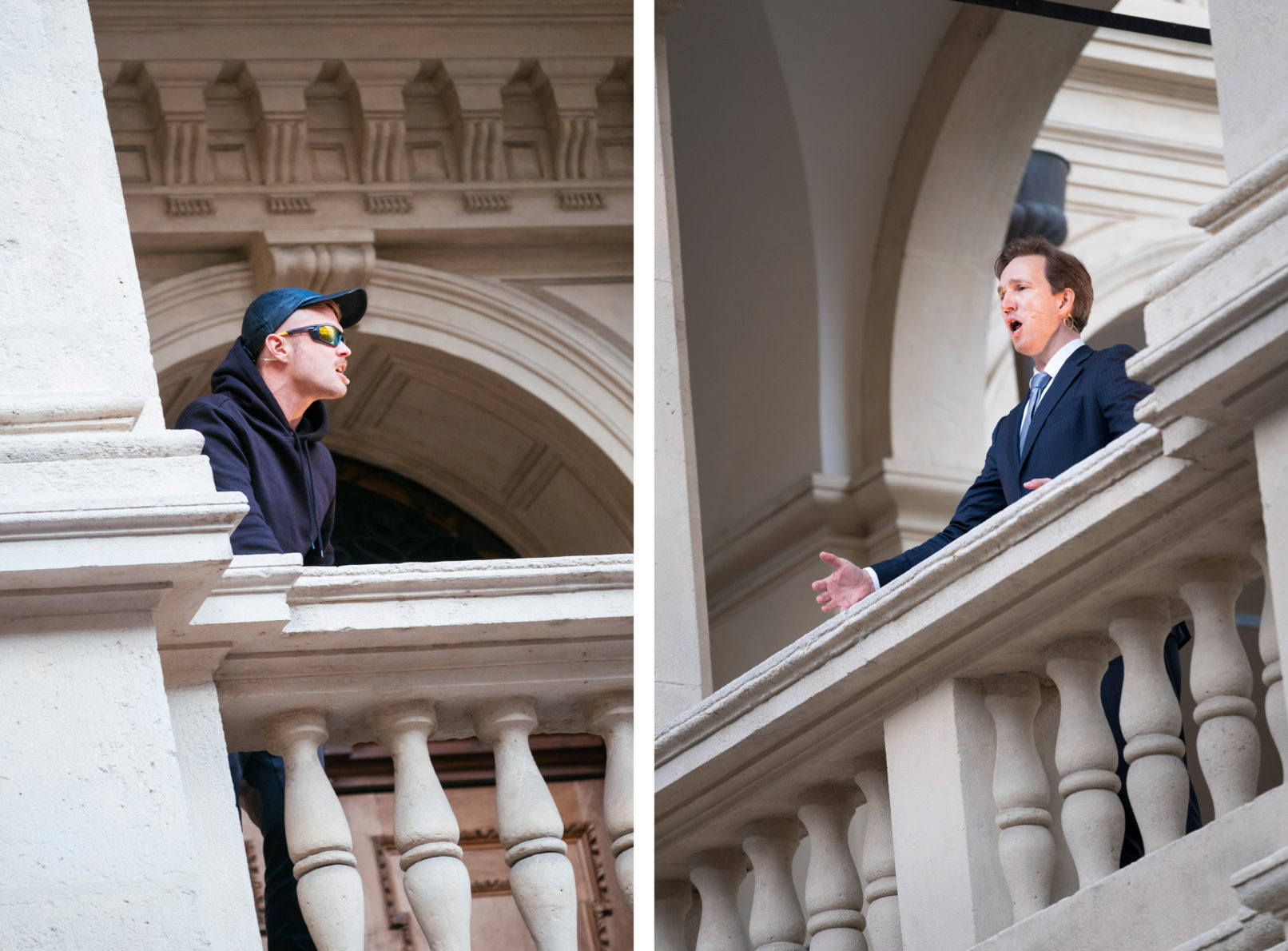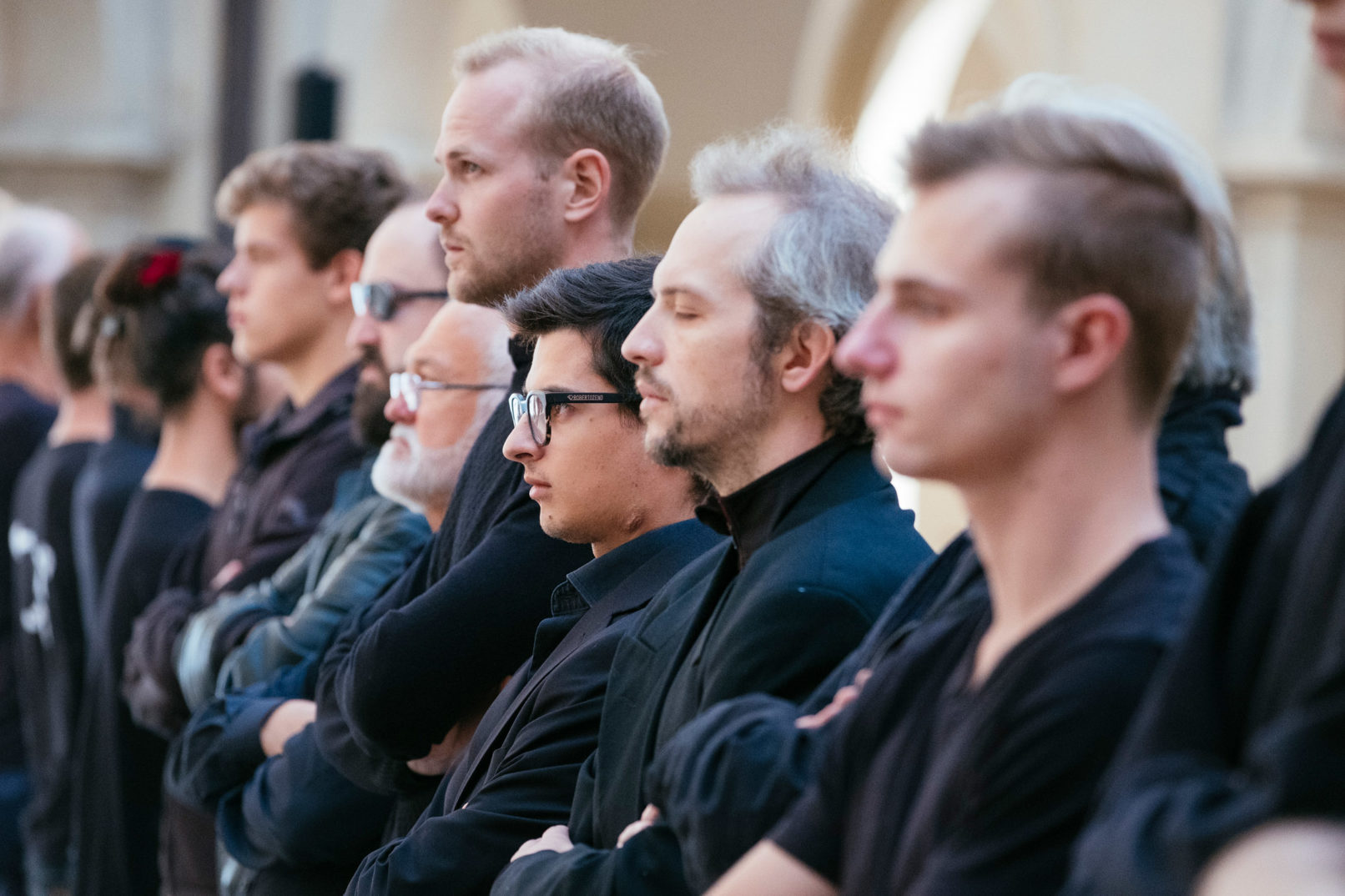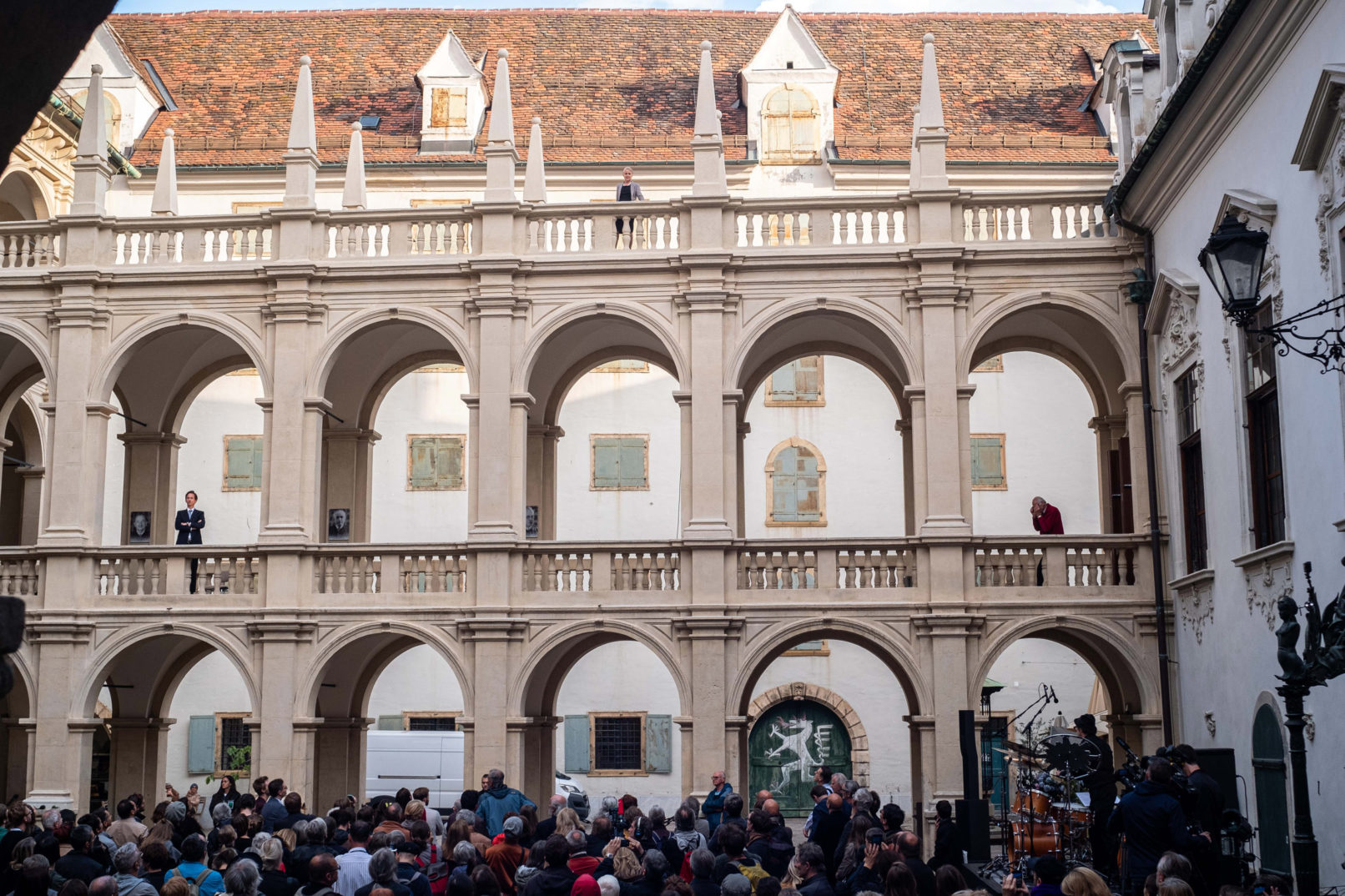Voicers
Oratorio for Five Speakers and a Listening Crowd
30min, 2019
Performers: Anna Clementi, Marek Kalbus, Ludwig Obst, Marc Weiser, Angela Wingerath
Percussion: NU Unruh (Einstürzende Neubauten)
Choir: 20 malicious men
Studio and recording: Kalle Enkellman
Casting: Thomas Herbst (Karlrecords)
Film: Małgorzata Mazur
Research assistance: Martyna Hadyńska
Photos: Clara Wildberger, MathiasVoelzke
Commissioned and produced by Steirischer Herbst
Mirela Baciak, Sebastian Sprenger
Zorka Wollny’s oratorio explores political speech—and particularly its sound—as a medium for collective experiences and affects. Sampling various modes of political address found in public life today, she turns their clichés into material for a nontraditional opera. Five politicians hold speeches typical for their respective positions. In recognizable fragments taken from the daily press, they cater to different target groups, projecting visions of the past and the future. Regardless of whether their outlook is conservative or radical, their political jargon soon falls apart and becomes music. Concrete references disappear behind rhythmic repetition and sound itself. What remains is the actual meaning of political speech as a form of address that always refers to a “we” or a “you,” constructing collective subjects that it then inspires with hope and fear. The sixth performer is the audience, as it listens and inevitably reacts to the ethical challenges posed by all these hypnotic political speeches.
Mirela Baciak, Steirischer Herbst
Read libretto here: Libretto_EN
A central question for most humanism and activism today is how to come together beyond populism while not simply preaching to the choir. On September 19, Grand Hotel Abyss opened in the midst of this shattered commons with composer Zorka Wollny’s Voicers—Oratorio for Five and a Listening Crowd (2019) performing the vacuity of political speech. From balconies of the Renaissance palace Landhaushof Graz, five people sang drowned-out arguments for unity across the political spectrum.
http://moussemagazine.it/grand-hotel-abyss
Frida Sandström
Zorka Wollny’s amusing take on the melody of political speech inaugurated the festival’s opening. Smartly dressed performers appeared sequentially on the balconies of renaissance Grazer Landhaus, chanting trivial phrases to the steady beats and eventually outshouting one another with semantically empty slogans. Anti-establishment voices of past and present joined their musical-like debate, yet can they be trusted? In the rambling cacophony, their claims blend with insincere promises.
https://contemporarylynx.co.uk/steirischer-herbst
Natalia Dorocka
Renesansowa perełka architektury stała się tłem dla performansu Zorki Wollny Głosiciele – Oratorium na pięciu mówców i słuchający tłum. Co prawda w większości był on odegrany po niemiecku, ale nawet bez zaawansowanej znajomości tego języka można było łatwo wczuć się w atmosferę politycznego wiecu – pojawiający się na krużgankach mówcy kolejno starali się „oczarować” okrągłymi frazami wyjętymi z prawdziwych przemów i artykułów prasowych, aż w końcu ich nawoływania i obietnice złączyły się we wspólny, bełkotliwy jazgot. W finale ten populistyczny koncert został dopełniony złowieszczym pomrukiem białych mężczyzn, wszystkich ubranych na czarno, którzy niespodziewanie wyłonili się z tłumu i ustawili na dziedzińcu w bojówkarski szereg.
https://magazynszum.pl/znudzic-sie-katastrofa
Karolina Plinta
Na balkonach galerii zaczynają swój występ śpiewacy. Czy może agitatorzy, politycy, wodzowie, w ich słowach przecież często słychać: „my” i wy”, budzące to nadzieję, to grozę. No i zaraz, czy to nie cytaty z Trumpa, Putina, Haidera, a nawet z Obamy? Najpierw pojedynczo, potem w dialogu z różnych stron dziedzińca, wreszcie pięć głosów splata się w jeden. Autorką tego oratorium jest polska artystka Zorka Wollny, która od lat zajmuje się dźwiękiem w przestrzeni. Kiedyś napisała „Koncert na wysokie obcasy” chodzony przez performerki w Collegium Novum w Krakowie albo utwór wykonany przez robotników w Stoczni Gdańskiej, albo też „Pieśń oporu”śpiewaną przez studentów uniwersytetu w Stambule. W Grazu powołuje się na liderów politycznych z różnych krajów i należących do różnych opcji. Pokazuje, jak melodyjnie brzmi manipulacja i jak trudno, kiedy się jest w tłumie, odróżnić szczerość od podłości.
https://www.vogue.pl/a/demontaz-atrakcji
Adriana Prodeus




